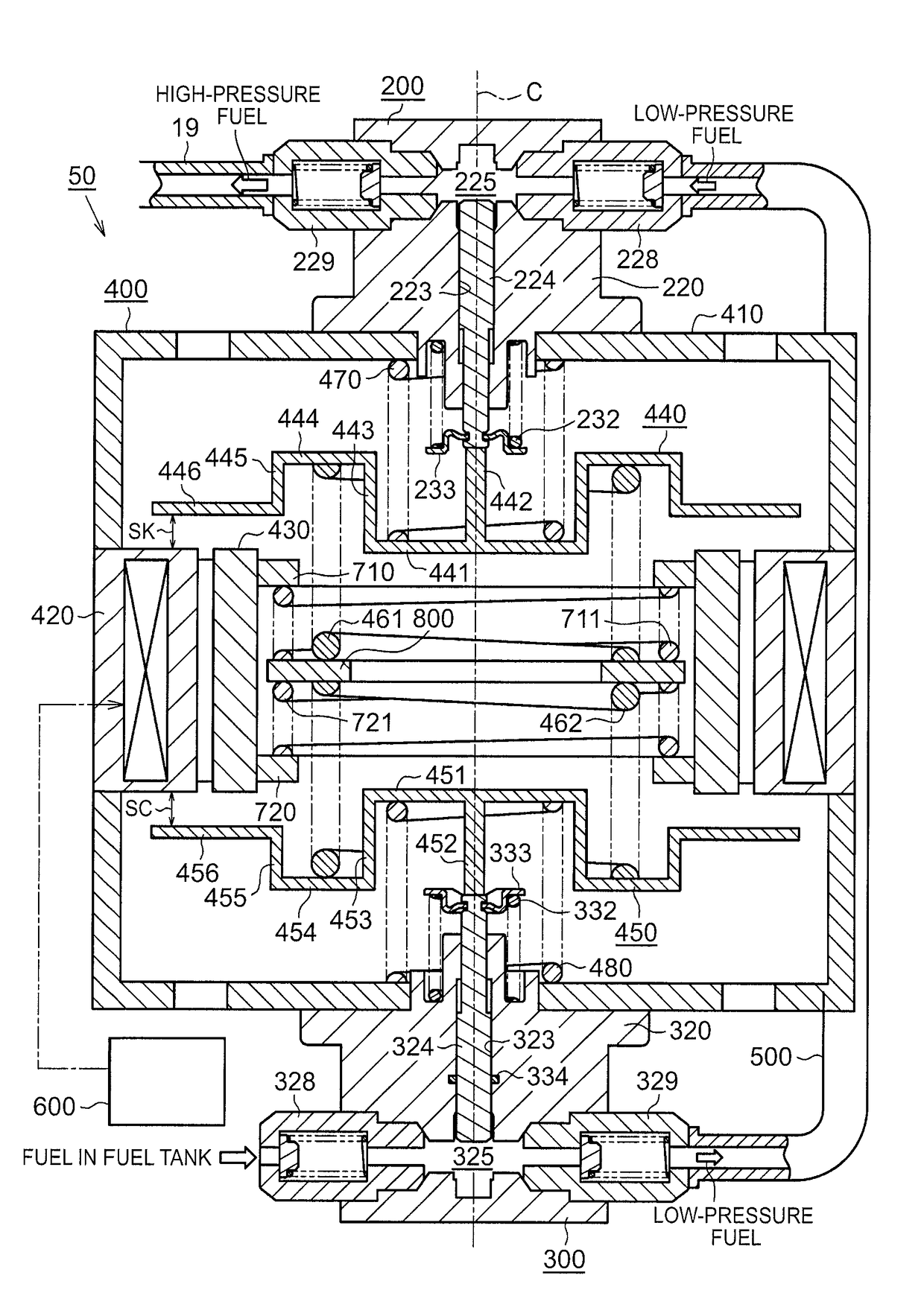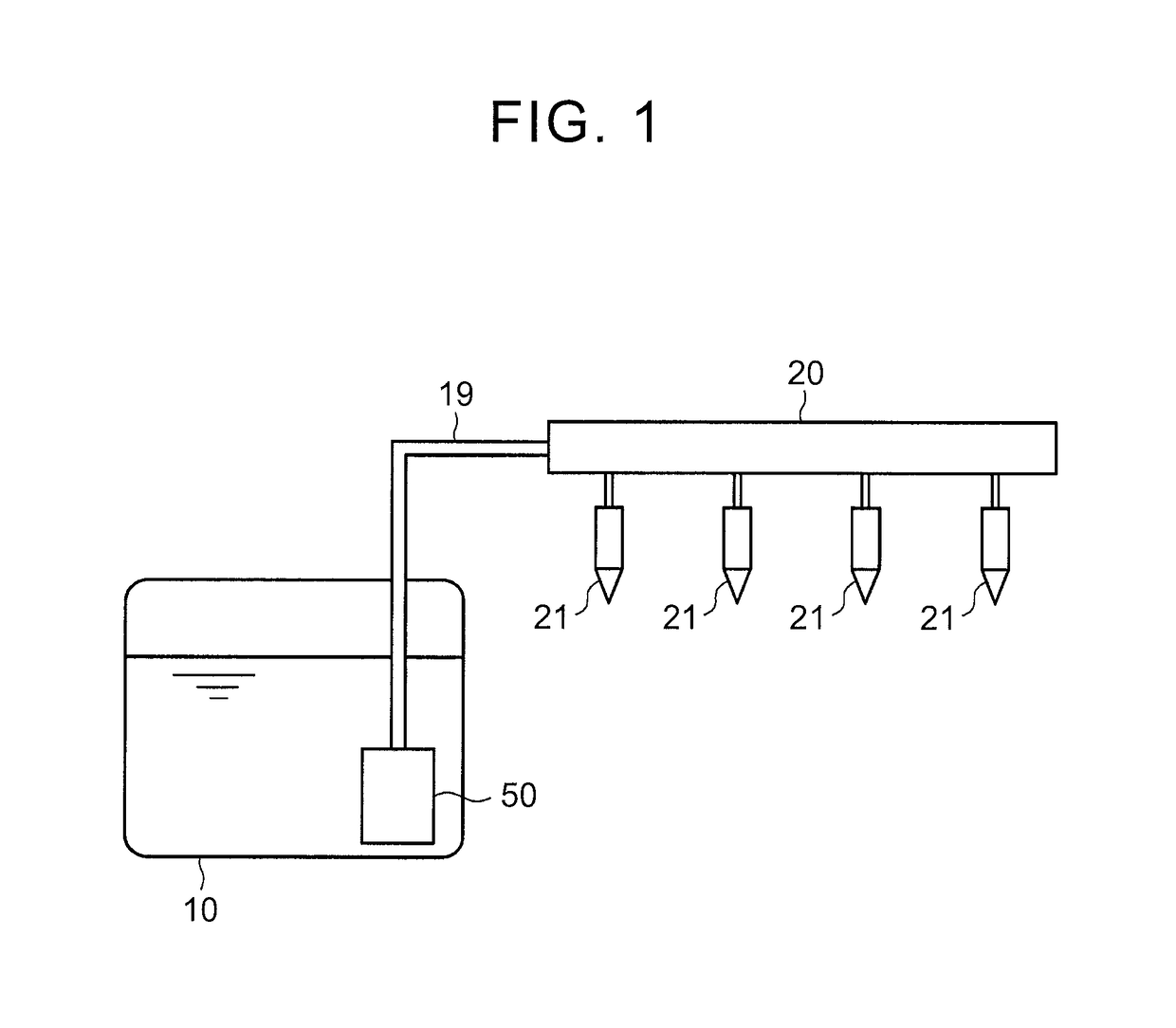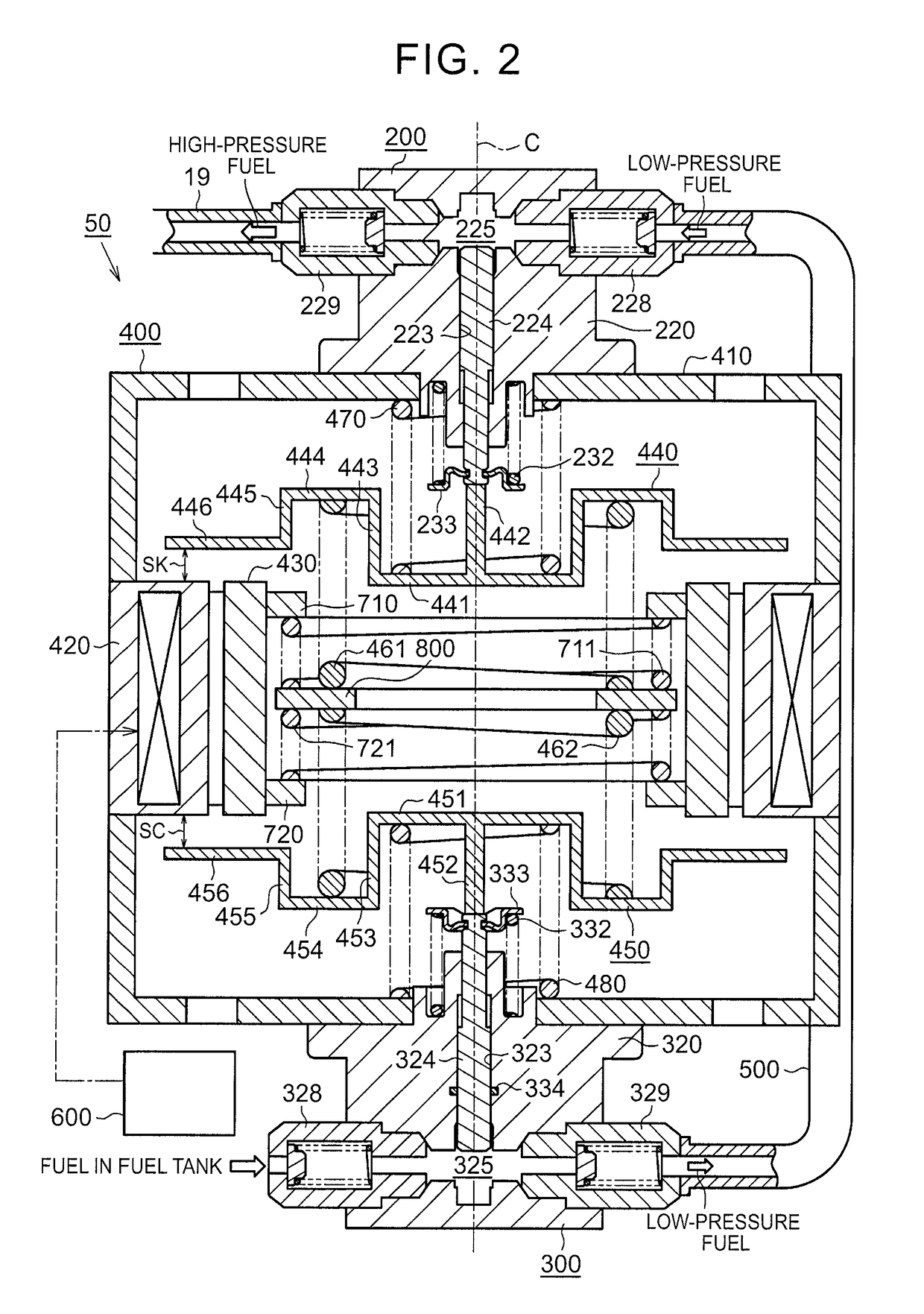Fuel pump
a fuel pump and pump body technology, applied in the direction of liquid fuel engines, piston pumps, positive displacement liquid engines, etc., can solve the problem of difficult movement of the piston in an ascending direction, and achieve the effect of low fuel pressure and higher fuel pressur
- Summary
- Abstract
- Description
- Claims
- Application Information
AI Technical Summary
Benefits of technology
Problems solved by technology
Method used
Image
Examples
Embodiment Construction
[0029]Hereinbelow, an embodiment as one example of a fuel pump will be described in detail with reference to FIGS. 1 to 6. A fuel pump 50 of this embodiment is configured as a high-pressure fuel pump that is disposed in an in-cylinder injection type engine for a vehicle.
[0030]As shown in FIG. 1, the fuel pump 50 that pumps out and pressurizes fuel is disposed in a fuel tank 10 of the in-cylinder injection type engine. The fuel pump 50 is connected to a delivery pipe 20 via a high-pressure fuel passage 19. Injectors 21 disposed in respective cylinders of the in-cylinder injection type engine are connected to the delivery pipe 20.
[0031]As shown in FIG. 2, the fuel pump 50 includes a first pump portion 200, a second pump portion 300, a drive portion 400, and a low-pressure fuel passage 500. The first pump portion 200 discharges high-pressure fuel. The second pump portion 300 discharges low-pressure fuel. The drive portion 400 drives the first pump portion 200 and the second pump portio...
PUM
 Login to View More
Login to View More Abstract
Description
Claims
Application Information
 Login to View More
Login to View More - R&D
- Intellectual Property
- Life Sciences
- Materials
- Tech Scout
- Unparalleled Data Quality
- Higher Quality Content
- 60% Fewer Hallucinations
Browse by: Latest US Patents, China's latest patents, Technical Efficacy Thesaurus, Application Domain, Technology Topic, Popular Technical Reports.
© 2025 PatSnap. All rights reserved.Legal|Privacy policy|Modern Slavery Act Transparency Statement|Sitemap|About US| Contact US: help@patsnap.com



